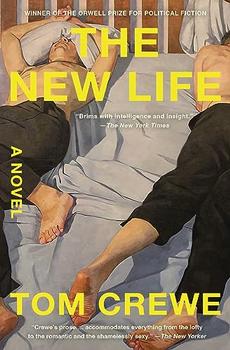Reading Guide Questions

Please be aware that this discussion guide will contain spoilers!
- On page 85, the reader learns of Henry's "peculiarity" and the shame he's felt about it for his entire life. This "peculiarity" allows him to sympathize with "inverts" and their oppression. Discuss how narrow the definition for "normal" really is. How many people fall outside of that category? How have the confines for normal broadened or narrowed since Henry and John's day?
- A recurring fear of both John and Henry is that John's "inversion" will be discovered, discrediting their book. Why is it that we don't trust the subjects of debate to have a credible perspective? What are some examples of conversations where the people most affected by the decision are left out of the process?
- At the beginning of chapter 11, John recalls the events leading up to his marriage to Catherine, the dread he felt, his inability to focus, his casual cruelty because he did not love her. He recalls rushing into the marriage even though he knew it was wrong. Discuss a time you were torn between instinct and reason when making a decision. How often were your instincts right?
- On page 126, in the midst of a heated conversation about sexual freedom and contraceptives, Angelica says, "If sex is considered a pleasure, why would you not make it safe from consequences in every kind of case?" What role does moral posturing play in maintaining the status quo? How does it contribute to restricting bodily autonomy?
- In the same conversation, and later on page 152, the meaning and limits of liberty are raised again. Angelica claims that "liberty can be abused." How is "liberty" being defined here? Does that definition allow for individual self-determination? How is "liberty" constrained when someone other than the individual gets to decide when they are "abusing" it? How do responsibility and liberation compete with or complement each other?
- In a letter to Henry on page 141, John defends the omission of female inverts from their book due to the lack of legal penalty. However, lesbianism was socially taboo, and women who attempted to marry one another with one presenting as a man were charged with fraud. Considering that Edith and Angelica were by no means free to be together despite it not being explicitly illegal, how does this illustrate the limits of legality as a means of liberation?
- Consider the ripple-effects of the prohibitive laws against "inversion." John's wife, Catherine, is deeply wounded by the limits placed on his choices—and by his resulting actions—and is not free herself to seek other companionship. Discuss the ways in which this reflects Franny Lou Hamer's quote "Nobody's free until everybody's free."
- Consider the line "We must live in the future we hope to make." What does this mean to you? How do you or how would you incorporate this into your own life? What future do you hope to make?
- On page 245, John says "I said to Ellis today that there are blameless lives, that Wilde had dragged us all down with him. It isn't true. I don't think any of us are blameless—we haven't been allowed to be." Explore the concept of innocence as a requirement for justice or equality. Why is it that John feels that in order to be protected, he and other inverts need to be completely "blameless"? How does the concept of "innocence" play into who is granted justice?
- Jack confronts Henry after discovering that he is continuing with the plan to publish the book, afraid of what it will mean for him. On page 256 he says "Does it ever occur to you that the New Life might be easier for some people to live than for others? ...The gap is wider if you are in defiance of the law, than if you simple choose to live apart from your wife." Discuss other instances in the book where it is clear that the "New Life" only offers liberation for some. How could the "New Life" become accessible to all?
Book Group Activities:
- Chapter 21 begins with letters and quotes from Oscar Wilde's actual trial, interspersed with John's memories. Read some of Lord Alfred Douglas and Oscar Wilde's letters from My Darling Boy or an online collection like oscarwilde.org.uk. Consider what it would be like to receive these letters and then have them used against you.
- Alexandra Kollontai, a contemporary of John Addington Symonds and Havelock Ellis—upon whom the John Addington and Henry Ellis of this book are based—published the essay Love and the New Morality in Russia in 1911 (available for free online). In it she explores the ideas of "erotic friendship" and "game love." After reading it, how do her ideas relate and expand upon the "New Life" Henry and Edith were trying to create?
- Walt Whitman features heavily in The New Life as a figure of hope for those who experience "Greek feeling," as homosexuality is referred to in the book. Read a few of his poems, particularly "Calamus", "For You O Democracy", and "Earth, My Likeness," which John and Henry discuss in their first letters. What do you make of these poems? Which elements hint at "Greek Feeling"? Do you see what about them so moved both John and Henry?
Unless otherwise stated, this discussion guide is reprinted with the permission of Scribner.
Any page references refer to a USA edition of the book, usually the trade paperback version, and may vary in other editions.






